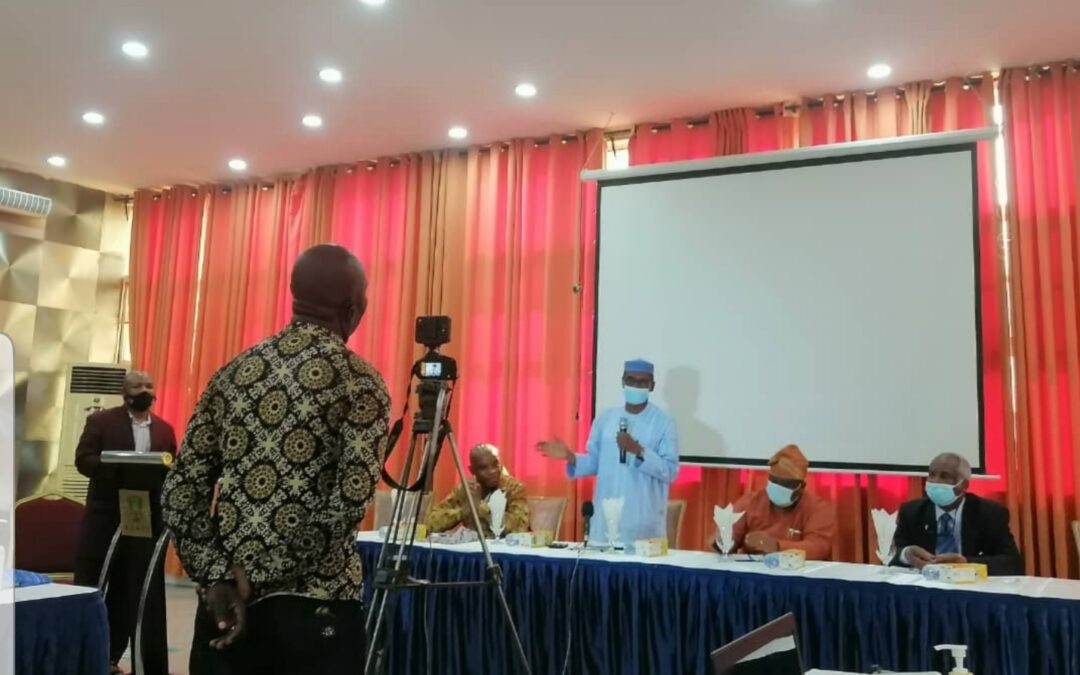Written by
Ogechi Irechukwu (she/her), Oyeyemi Pitan (she/her) & Dr. Obinna Onuoha
With support from the Africa Health Budget Network (AHBN) and funding from PMNCH, a 2-day advocacy retreat was organised between 7th and 8th April 2021, for NGOs and young people, on Nigeria’s commitment to the PMNCH COVID-19 Call to Action. This event was also in commemoration of this year’s World Health Day, with the theme: Building a Fairer and Healthier World.
The objectives of the event were to:
- Build the capacity of NGOs and youths to improve RMNCAEH+N partnerships and programming in Nigeria.
- Strengthen collaboration among participants for a coordinated action plan.
- Identify effective approaches and strategies that can be used to advocate for the PMNCH Call to Action in Nigeria
- Understand the specific commitments Nigeria made in response to the PMNCH COVID-19 Call to Action
The interactive event saw an inclusive representation of speakers including Hon. Muhammad Usman, Chair of the National Advocates for Health; Ms. Toyin Chukwudozie, the Adolescent Youth Representative at PMNCH; Mrs. Pitan Oyeyemi, Convener of the Nigerian Youth Champions for Universal Health Coverage; Ms. Joyce Iwatutu, Africa NGO Delegate to the UNAIDS Programme Coordinating Board; Dr. Idris Mohammed, Convener of the Nigeria GFF CSOs Working Group; and Dr. Uwemedimo Uko Esiet, Convener of the African Federation for Sexual Health and Rights.
During the event, presentations were made on the 7-point agenda of the global commitment on PMNCH launched in December 2020 to promote the health, well-being and rights of women, children and adolescents; Nigeria’s country commitment to PMNCH COVID-19 Call to Action; an introduction to advocacy and accountability; and the use of social media advocacy to achieve the PMNCH commitments.

In addition, a parliamentary and citizens hearing was convened, aimed at sensitizing and engaging NGOs and young people on the oversight and accountability functions of the National Assembly for health systems strengthening. Panelists at the hearing included:
- Dr. Uwemedimo Eko Esiet
- Hon. Muhammad Usman, a former Deputy Chair of the House of Representatives Committee on Health Services
- Prof. Oladipo Ladipo, pioneer Chair of the National Advocates for Health
- Hon. Samuel Babatunde Adejayi, the current Deputy Chair, House of Representatives Committee on Health Services
During the hearing, some questions were investigated such as:
- How the Government of Nigeria intends to encourage the 36 States and the Federal Capital Territory to allocate 15% of the total budget to health?
- Implementation of the National Health Act and the Basic Health Care Provision Fund (BHCPF), what needs to be done to address the gap?
- On the Global Fund monitoring, what are the structures required to track funds and provide oversight to the recipients of grants?
- Other observations made include:
- To bridge the gap, the PHC should be well equipped. Basic Healthcare Coverage Provision fund should also be utilized for capacity building, maintenance, and purchase of FP commodities where there is stock out. This would increase citizen access and acceptance while also taking into consideration culture and attitude of healthcare personnel.
- Comparing the health sector in the 70s and currently: increased population increases the burden on the health sector. The health structures need to be improved including human capital and providing the enabling environment. Health literacy will bring about better health seeking behavior, change in mind set and engagement of TBAs
- Ensure partnership for health at all levels (state members, CSO from various states; youth involvement) and ownership at the community level.
- On the Family Planning (FP), community-based services should be adopted in creating more awareness on the uptake of FP commodities and increase engagement of Traditional Birth Attendants (TBAs)
In summary, the event agreed on the following recommendations:
- Universal health coverage (UHC), implemented through the National Health Insurance Scheme (NHIS) should be utilized as a point of entry to achieve quality healthcare service provision and hence the commitment should ensure the accessibility to healthcare services.
- Such quality and accessible healthcare services should provide an inclusive RMNCAEH+H package of services, including FP, nutrition, and sexual and reproductive health education via primary healthcare centres (PHC)
- Government should be more committed to the allocation and release of funds for procurement of FP (condoms, pills) and nutrition (ready-to-use therapeutic food; RUTF) commodities.
- Proper feedback mechanisms and a robust accountability process should be established to track the PMNCH financial commitments.
- Strengthened partnerships for health at all levels, particularly at the State level with the involvement of CSOs and youths, for ownership at the community level.
- Improved partnership between the media and CSOs to ensure adequate and accurate reporting on health issues for information dissemination.
- The need to identify and utilize effective means of advocacy such as the engagement of the Nigeria Governor’s Forum and the Forum of Health Commissioners.

